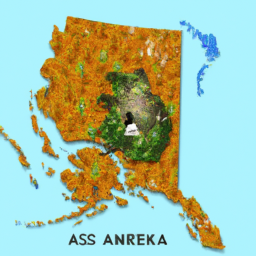In recent years, the United States has seen a significant shift in public opinion towards the use of marijuana, leading many states to legalize the drug in some form. Alaska is among the states that have embraced marijuana legalization, having allowed the use of marijuana for medical purposes since 1998 and for recreational purposes since 2014. With the growing acceptance of marijuana nationwide, it is essential to understand the current state of marijuana laws in Alaska, the regulations governing its use, and the impact of legalization on the state's economy and society.
Alaska's legalization journey began in 1998 when the state approved the use of marijuana for medical purposes. Patients with qualifying medical conditions could now access marijuana to alleviate their symptoms. This marked the beginning of a more progressive attitude towards marijuana in the state.
The next significant milestone came in 2014 when Alaska voters approved Measure 2, which legalize recreational marijuana use for adults aged 21 and over. The measure allowed individuals to possess up to one ounce of marijuana, grow up to six plants, and give marijuana to other adults as long as no money was exchanged. However, it took until 2016 for the state to establish a regulatory framework for the sale of recreational marijuana.
The Alaska Marijuana Control Board was created to oversee the state's marijuana industry, regulate its production, and ensure public safety. Businesses that wish to participate in the marijuana market must obtain a license from the board, which has strict requirements and regulations in place to ensure the safety of consumers and the community.
Despite the legal status of marijuana in Alaska, it remains a Schedule I controlled substance under federal law. This creates challenges for businesses operating in the state, as they cannot access traditional banking services and must operate on a cash-only basis. Additionally, marijuana users still face potential consequences if they consume the drug on federal property or in federally-funded housing.
One of the most significant benefits of marijuana legalization in Alaska has been the tax revenue generated from the sale of the drug. In 2021, more than 3% of all taxes collected in the state came from marijuana sales, providing a valuable source of income for the government.
The marijuana industry also creates job opportunities for Alaskans. From cultivation and processing to retail sales, the industry has provided employment for thousands of residents, contributing to the state's overall economic growth.
legalization has also led to a decrease in marijuana-related arrests, reducing the burden on the state's criminal justice system. Attorney Jana Weltzin, founder of a law firm specializing in cannabis law, notes that the court system is no longer the primary record repository for marijuana-related offenses in Alaska.
However, marijuana legalization has not been without controversy in Alaska. In 2018, regulators seized marijuana products from Will's World Extract, a local business, due to concerns about the safety of their products. This highlights the importance of strict regulations and oversight to ensure public safety.
While Alaska has been progressive in its marijuana laws, it has not yet enacted cannabis-specific record clearance laws. Out of the 19 states that have legalize marijuana, only Maine and Alaska have not implemented such legislation. Record clearance laws allow individuals with past marijuana-related convictions to have their records expunged or sealed, reducing the long-term consequences of these offenses.
Alaska's marijuana industry has also been impacted by the 2018 Farm Bill, which legalize hemp and triggered a boom in CBD products. However, Alaska's top cannabis regulator, Joan Wilson, warns that not all CBD products on the market are compliant with state regulations, emphasizing the need for consumer education and vigilance.
In neighboring Oklahoma, a recent ballot initiative to legalize marijuana was rejected. This decision highlights the varying attitudes and approaches to marijuana legalization across the United States, as states continue to grapple with the complex issue.
legal marijuana prices in Alaska have been influenced by the broader market trends. According to Statistics Canada, the average cost of a gram of legal cannabis in 2019 was $10.29, a year after recreational cannabis was legalize in Canada. While this price point may be higher than that of illicit marijuana, it reflects the costs of regulation, testing, and taxation.
In conclusion, Alaska's marijuana laws and regulations have evolved significantly over the past two decades, reflecting the broader shift in attitudes towards the drug. The state has reaped the benefits of marijuana legalization in the form of tax revenue, job creation, and reduced strain on the criminal justice system. However, it is essential to maintain strict regulatory oversight and continue to address the challenges posed by the intersection of state and federal law.
